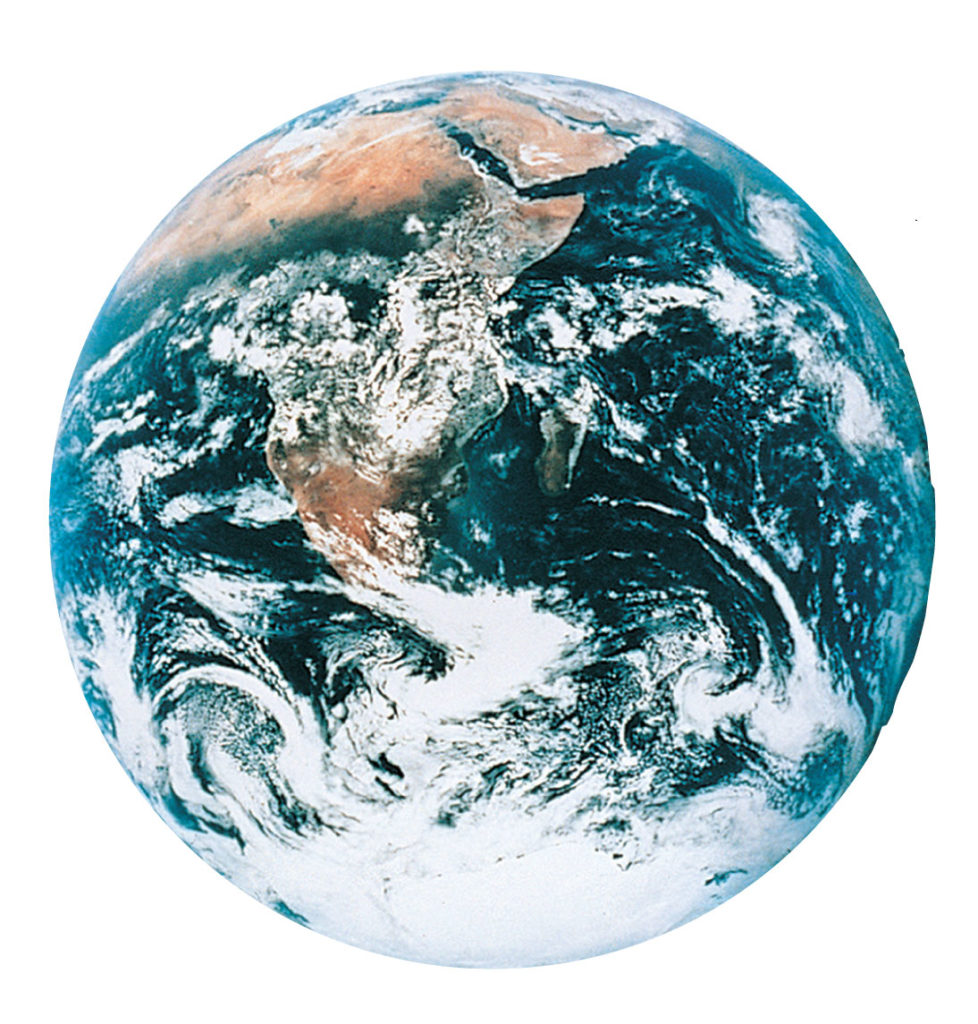
“All creatures of our God and King, lift up your voice and with us sing, alleluia.”
(St. Francis of Assisi, Canticle of Creation)
For Francis of Assisi all that God has made is holy. Francis saw all creatures as brothers and sisters to be respected. He named creation in terms of a loving family: Brother Sun, Sister Moon, Sister Earth, Brother Wind. Francis’ love for creatures endears him today to environmentally conscious people who see all creation as an interdependent community of life. Some theologians also recognize creation as an interwoven circle of life.
Many people know about Francis because of the birdbath statues in gardens. Do you find such a statue in your yard or neighborhood? There is good reason for Francis to be there on the birdbath–because he loved birds, just as he loved all creatures. But how can we see beyond this view? How might we recognize Francis as an ecologist who respected all of creation?
Now recite slowly the line under the picture above. For what creatures might you give praise–violet? the sun? a favorite lake? a pet? Francis’s biographers say he saw even in a bug the sacredness of life. How do you react to bugs?
As human beings we have special gifts but also special responsibilities to care for the earth as God cares for it. We of the 21st century are beginning to realize more and more our duty to preserve (and enhance) the earth rather than destroy it.
Francis of Assisi knew his responsibility and acted out of his concern. He expressed his love and praise of God throughout his life, singing of God’s presence in all creation. He was inspired by Psalm 148 in his Canticle of Creation which praises God as the Creator of the universe. This Canticle praises Brother Sun, Sister Moon and Stars, Brother Wind and Air, Sister Water, Brother Fire, Sister Earth. In his praises he uses descriptive voices, praising Sister Earth, for example, with these words: “our mother who feeds us in her sovereignty and produces various fruits with colored flowers and herbs.“ Francis saw himself as a simple servant and caretaker of creation. He addressed creatures as sisters and brothers, as equals, not as subjects to be dominated. He did not reject the world but rejoiced in it.
As an ecologist Francis was ahead of his time. The St. Anthony Messenger devotes a special issue (October, 2007) to “Francis, Faith, and Ecology.” In the lead article by Jack Wintz, Francis is called “Patron of Ecology.” Francis saw himself, like today’s environmentalists, as part of the ecosystem, not as a proud master over and above it. Pope John Paul in 1979 also proclaimed St. Francis of Assisi the patron of ecology, citing him for being “an example of genuine and deep respect for the integrity of creation…. St. Francis invited all creation–animals, plants, natural forces, even Brother Sun and Sister Moon–to give honor and praise to the Lord.”
In the past many people were tempted to consider ownership of the earth as absolute. They failed to recognize God’s ownership of all creation. For centuries human beings have consumed much more than their share of the world?s resources. They, and perhaps we, have failed to consider that all—men, women, and children—have been created in the image of God. And think about all the plants, animals, and mineral resources human beings have harmed. What would Francis think today of the ecological danger our planet now faces?
How can you as a Christian disciple, along with the help of others, reverse these trends and help to bring back the biological diversity of God’s creation? Think about ordinary daily choices you make:
- Do you bother to recycle?
- Do you travel in the most fuel-efficient way?
- Are you a conscientious consumer of produce and manufactured goods? Do you use heat and light economically and efficiently?
- What about societal choices? Are you aware:
- of the thousands of plant and animal species now lost forever?
- of the stripping of the earth and forests?
- of the pollution of water?
- of the destruction of wetlands?
- of the wasteful and sometimes inhumane—treatment of animals?
- Think of a specific action you could do.
- How about praying as a lover of the cosmos?
Francis was centuries ahead of his time. At long last we are beginning to listen to what he was calling all creatures to. Over the past century science has begun to recognize the story of a historical cosmos that emerged some 12 billion years ago. We are awakening to a new realization of its vastness and complexity. At the same time we are becoming aware of our current environmental crisis with its radical destruction of species and habitat. Our Earth took more than four billion years to bring forth the abundance of life that we now are endangering.
As Christian disciples today we are called to care about the life systems of earth, to value diversity, and to address the unmet ecological needs of our human, plant, and animal communities. Francis of Assisi, a Christian disciple in his own day, is still present in spirit in the crises of our day.
Look once more to St. Francis. What have you learned from reflecting on Francis that can make a difference in how you live? How can you personally cultivate respect for all creation? Think of an experience in which you saw an example of reverence for creation or lack of it. What have you learned from Francis about deepening your spiritual life?